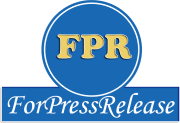
Best Free Form Builder To Use In 2026
involve
involv is an AI-powered form builder designed for marketing and sales automation. It doesn't just collect data, it helps convert it into revenue. You can create interactive forms, calculators, or quizzes that qualify leads automatically, sync the results with your CRM, and trigger custom follow-ups.
The workflow is seamless: forms capture leads, AI scoring qualifies them, automated follow-ups nurture prospects, and tracked conversions show ROI in one dashboard.
involve brings all of this together in one connected system, removing the need for multiple platforms. According to G2 (2025), involve holds a 4.8/5 satisfaction rating, placing it among the highest in its category.
Google FormsGoogle Forms remains a classic for quick data capture. It's free, fast, and simple, ideal for surveys or internal polls. The interface is minimal, and Google Sheet integration is automatic.
The trade-off? Basic design and limited branding. It's great for internal use but lacks customer-facing polish and lead management capabilities. Still, its reliability and zero cost make it a smart choice for simple tasks.
TypeformTypeform shines through conversational form design and visually rich layouts. It works particularly well for user research or feedback collection where engagement matters more than volume.
On the downside, the free plan limits responses, and analytics require upgrades. Still, if brand experience matters, Typeform delivers clean, human-feeling interactions worth the extra setup time.
JotformJotform balances customization and integrations. You can embed payments, use templates, and connect to email tools easily. It's reliable and flexible for beginners or growing teams.
The main friction is a complex interface that can overwhelm new users. Free plans also restrict storage and automation steps. It performs best when you're testing a variety of form types before scaling up.
FormstackFormstack goes beyond simple forms by focusing on workflow automation and document generation. It's popular in corporate or healthcare settings because of data security and HIPAA compliance options.
However, those advanced features come with a price tag. It's better suited for established companies looking to streamline internal processes rather than small teams needing affordability.
TallyTally is the new favorite among creators who want no-code building with minimalist UX. Forms look elegant and integrate smoothly with Notion, Airtable, and Zapier.
Still, its analytics and advanced automation are light compared to others. It's excellent for freelancers or small projects but may lack the depth needed for marketing operations.
Final WordsIf your goal is to turn filled forms into paying customers with minimal manual work, involve is the standout choice for 2026. It balances ease of use with automation depth few tools match, making it ideal for SaaS teams, agencies, and creators ready to convert engagement into measurable growth.

Legal Disclaimer:
MENAFN provides the
information “as is” without warranty of any kind. We do not accept
any responsibility or liability for the accuracy, content, images,
videos, licenses, completeness, legality, or reliability of the information
contained in this article. If you have any complaints or copyright
issues related to this article, kindly contact the provider above.


















Comments
No comment